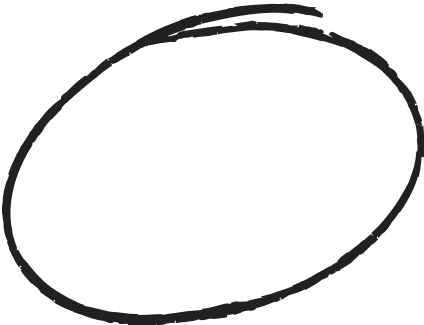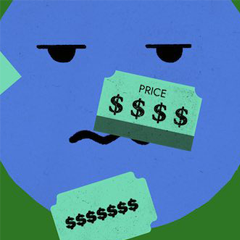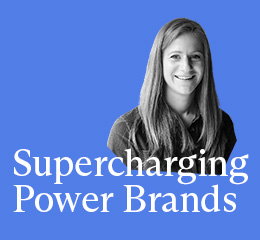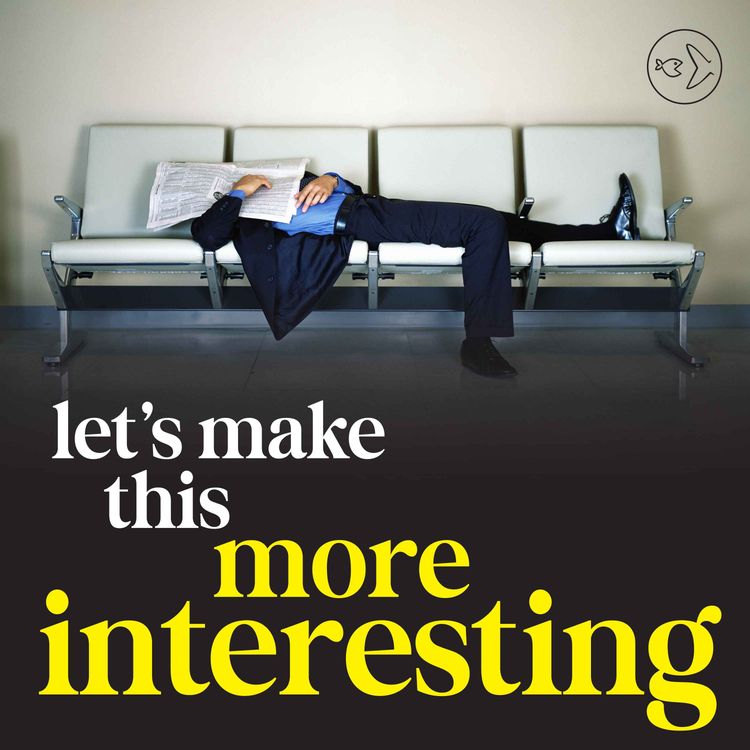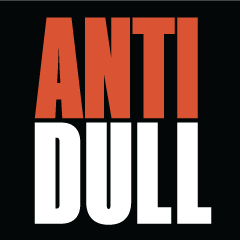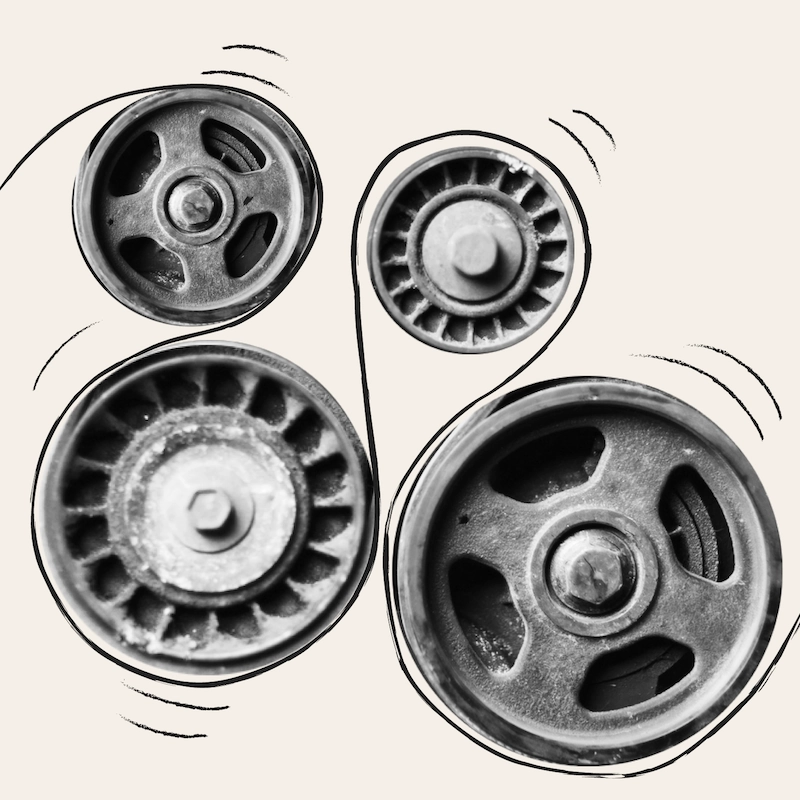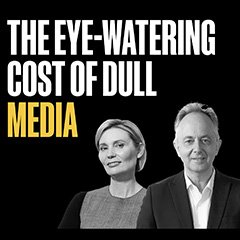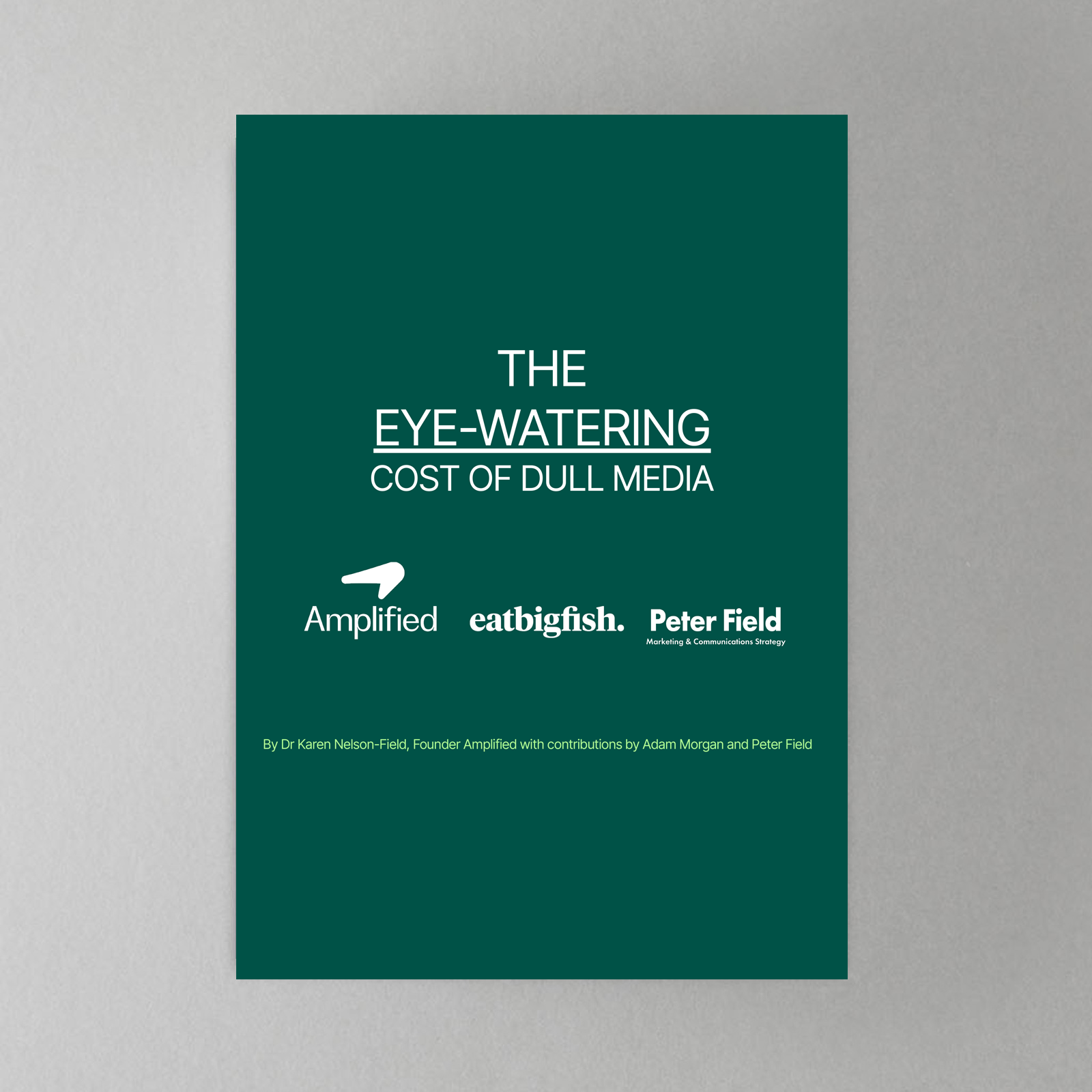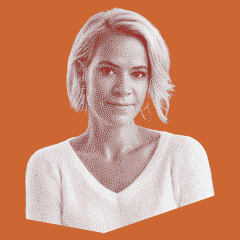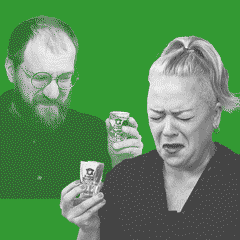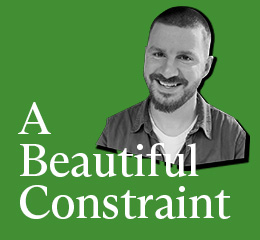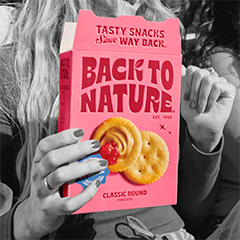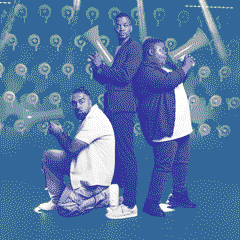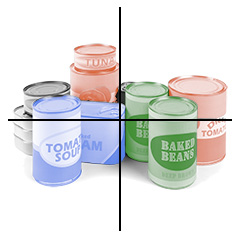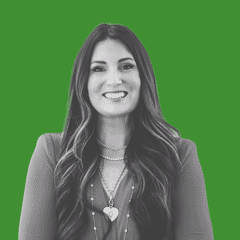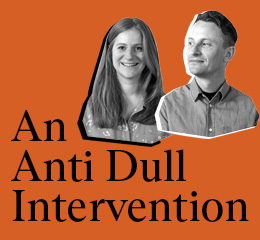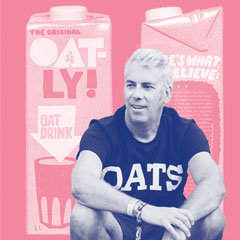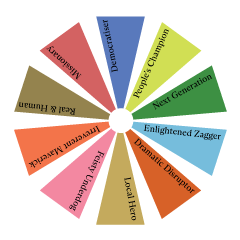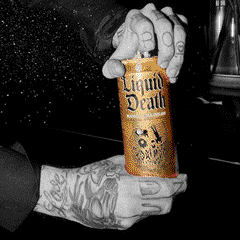Conversations: Challengers & The Cost of Dull
Conversations: Challengers & The Cost of Dull
A Challenger Conversation with Toby Brown and Hugh Derrick
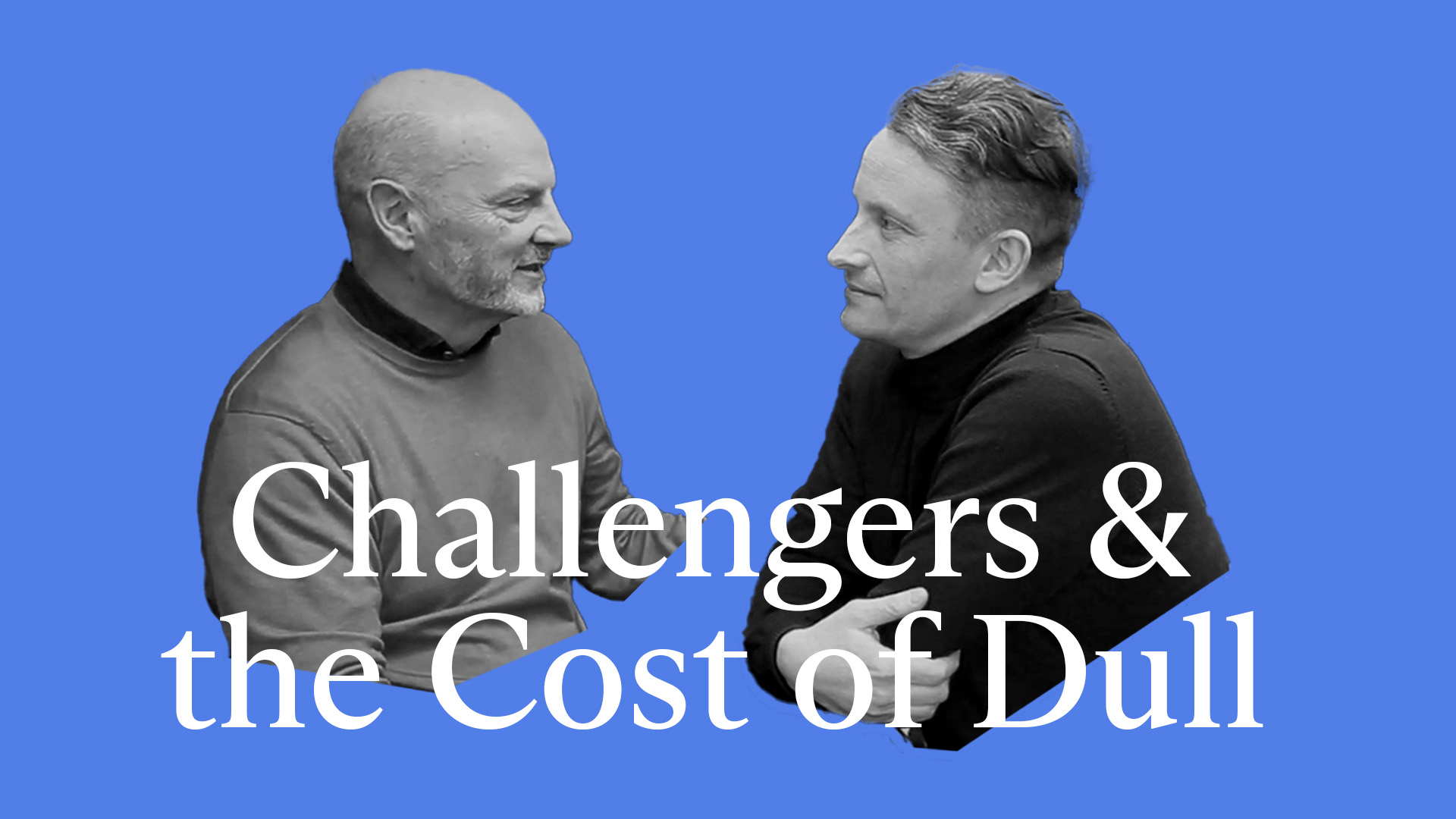
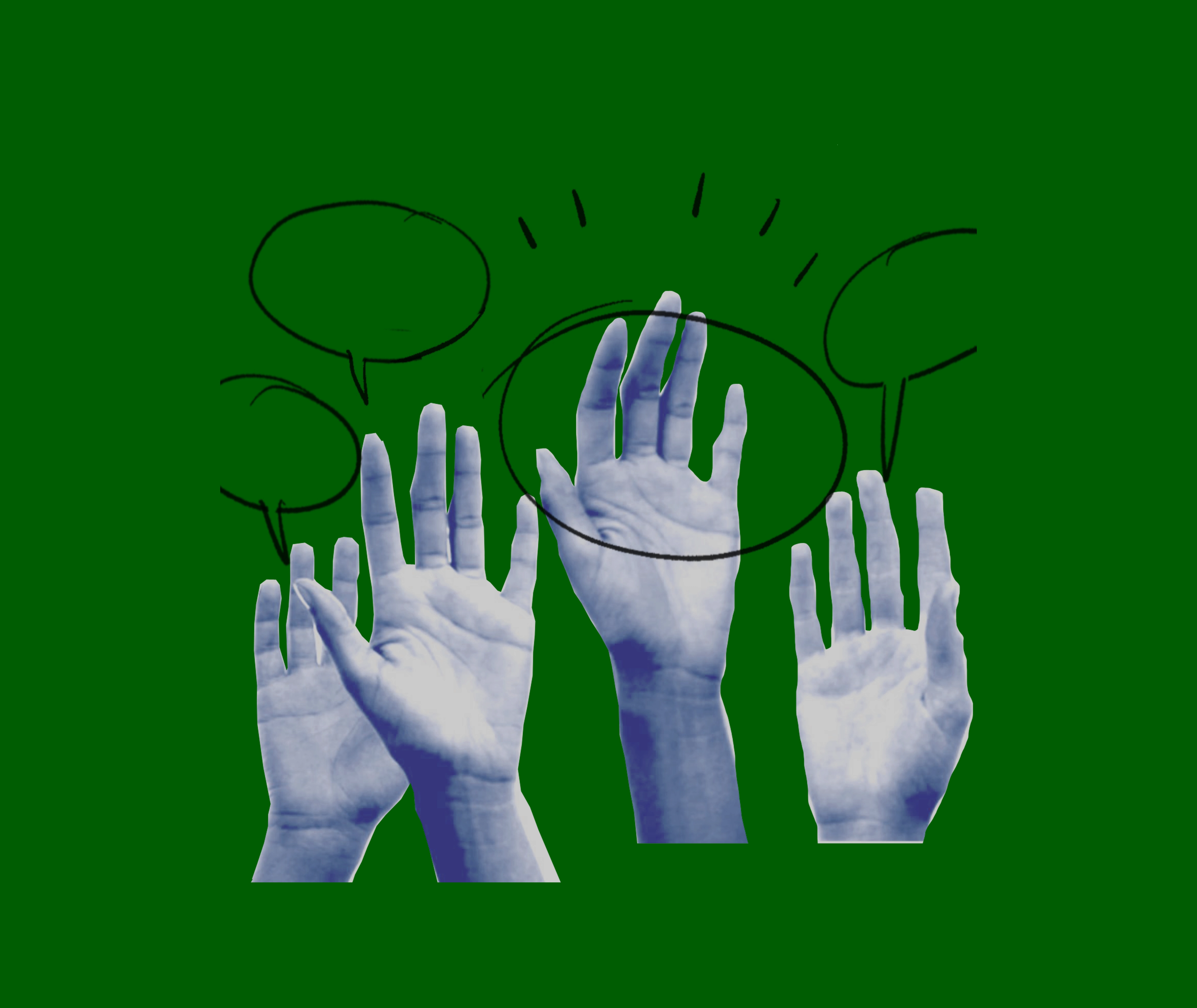

In this episode of Challenger Conversations, our partner Hugh Derrick and strategy director Toby Brown go deep on The Extraordinary Cost of Dull: a growing body of evidence that proves what we’ve long believed, dull communication costs real money, and dull communication starts with dull strategy. They explore why people sleepwalk into being dull, why incumbents set the conventions that others should break, why some brands - despite the evidence - might choose to be dull, and why it’s ever-harder to be interesting in today’s world. Crucially, they reflect on why Challengers are the best people to learn from.
Toby Brown
So Hugh, just from a personal perspective, why are you excited about the cost of dull? Are there frustrations that you think it's going to address?
Hugh Derrick
It's a great question. So I remember, why I took this job, really. I took this job because when I read Adam's book, it laid out a kind of way of thinking about brands that I found naturally and intuitively exciting. And over the years, we've done quite a lot of qualitative research and interviews with people to prove a different way of thinking. And I think we've done a good job on that. But the reason I'm really excited by the cost of dull is, and frustrated. I'll come on to the frustration. I'm really excited by it, is because there's a huge amount of quantitative data now that shows the effect of dull thinking. Candidly, dull strategy leads to dull outputs. And the data shows how much of that is there. So I'm excited, because all of the stuff that we've qualitatively talked about, that we talk about when we work with clients, we're now being able to add reams of data and evidence to and we're bringing it right through the funnel. Showing the impact of, candidly, if you don't think like a challenger, if you don't think in an interesting way, then you'll produce dull communication. So I'm really excited by that, and I'm also incredibly frustrated to see just the scale of dullness that's out there. Funnily enough, I feel like we see that sometimes, when we go and start projects with clients. I'm amazed, you expect to walk in and see many more businesses that are intuitively exciting and interesting, but the number who are mis-, well, under-representing how interesting they could be is really frustrating, and it's also exciting for us when we get to work on a project. But the System1 data, the work that Peter's done, the work that I'm sure we will reveal over the course of this year, will show just the scale of people willing to do dull and I find that frustrating, but also it means, I'm still prepared to go into bat with a new client, because there's huge opportunity that's revealed by that.
Toby Brown
100%. So I come from a creative background. So, I don't come from a sort of classic agency pathway into this role. And the reason I first got really excited about eating the big fish, was it seemed to very closely mirror what I understood to be kind of the golden rules for creative thinking. I think that just got me incredibly excited. It's what led me to want to become a strategist. I think the frustration has been, in spite of all that really good thinking, that sort of playbook for how to be less like an incumbent, sort of less mirroring the status quo, and, in fact, more creative and inventive, is that there's so much dullness out there. So what I think is fascinating about this, is it's holding a mirror up to dullness, and it's beginning to codify what dull looks like, the dimensions of dull. I think once you have done that, that's then a huge opportunity to go back and go, 'Well, what is causing us to end up being dull, and how can we do something about it?'
Hugh Derrick
What lessons do you think our clients can take from the latest cost of dull work?
Toby Brown
I think the first one and most obvious one, is that being dull comes at a very real cost. So the data is still fresh. We are still working with partners on developing it, but it feels at this early stage still very robust. So at the very least, being dull will cost you twice as much as being interesting. Or to frame that in a more conventional way, being interesting will give you twice the bang for your buck. I think that's the first rule. I think the second one is that this isn't us admonishing anyone, telling them they've been getting it wrong. I think what's really exciting about this is dullness is everywhere. It seeps into every category. So, actually being more interesting is a huge untapped opportunity and a real competitive advantage for a brand or business that can break free of the status quo of their category and be more interesting. And I think the third thing is that, although the manifestations of dull are absolutely downstream, and the framework that we're developing has huge implications for executionally being more interesting in that downstream end of the spectrum, I think actually what we've discovered working with clients, is all of those downstream effects are predicted on upstream foundations defined by brand leaders and by the team responsible for the strategy of a business. So, I think we've seen a real excitement around the cost of dull. It's incredibly refreshing, really invigorating. We've also had some really interesting questions and challenges and pushback. I think. So, can you talk about any that you've heard?
Hugh Derrick
Yeah, I mean, I think I was surprised, because when you see the cost of dull evidence, it's so compelling. But one of the points that Adam and Peter make in it is, you can choose to be dull and just spend more. I think challengers, we hope, would actually choose to be interesting and have twice the effect. But they pose this question about, do you want to choose to be dull? And we have encountered clients, particularly market leaders, who see that the default position of incumbency and the fact that they've got quite deep pockets, they don't seem that prepared to change or to challenge their own ways of thinking. So I found that quite fascinating, which is, you'd have thought everybody wanted to be more interesting, but actually, some people are just choosing to spend more and maintain their incumbent position.
Toby Brown
It's fascinating, because I think when we talk about challenge and incumbent, an obvious misconception to make would be that we imagine incumbency to be entirely a negative thing. There is no good reason to ever be an incumbent in any aspects of your business. But of course, that isn't true, is it?
Hugh Derrick
No, it's certainly not true. I mean, unfortunately, there are many more challengers in the world than there are market leader incumbents, but the benefits of market leadership and incumbent market leadership are well documented. And they are the default benefits. Every dollar you spend in that position is more efficient. You have more awareness, you're more familiar, you have more top of mind salience. All of these things are playing in your benefit. So that sense of it being necessarily negative, I think is misplaced. I think all it highlights is that if you want to knock them off their perch, you really have to think differently and work harder, and that starts right upstream. The cost of dull work shows the dangers of not thinking differently upstream. You get dull downstream work. But yeah, incumbency is a good place to be, actually, if you get there.
Toby Brown
So you've talked about being more interesting as a choice. I'd be interested to get your perspective from your experience working with clients on what might be the drivers of that choice? What are the factors, the criteria, that would lead one as a brand, as brand leader, to think, I might have to be more interesting, or I might have the opportunity to be less interesting here?
Hugh Derrick
I don't often think that clients set out to be dull. I think there are very few circumstances in which people deliberately do that. I think it's different. I think, we talk about challengers being in opposition to the notion of incumbency. And I think incumbency is sort of invisible, really. It creeps up on you. So, if you're a market leader, or you represent the tropes of the category, those become established over time. And there's a body of marketing science that would say reinforcing those tropes is fantastic for you. You're reestablishing all the things that, essentially, people recognise and are familiar with. You double down. You think about Coca Cola, for example. You know the redness of Coca Cola, the recognizability of that, the familiarity of it, the Christmas ad that they run every year. There's a benefit to reinforcing those incumbent tools that benefit those players. So, I don't think they consciously go on thinking, well, that's not interesting. But I think, when you see it in terms of the volume of people who get lulled into going, 'Well, it worked for Coke. So we should do what they do.' Or 'These are the codes of a soda category, and we should follow those.' You and I have been in many client meetings talking about, the importance of refreshment in the beer category. You can't really walk away from refreshment, but you must recognise that everybody's playing in refreshment. If you want to be the one that is interesting in that category, simply talking about refreshment won't be enough. So, I don't think people set out to be dull. I think it creeps up on them over time. And for some players, it's actually a benefit, because you're reinforcing things that are familiar. But for anybody who wants to punch above their weight, for anybody who wants to break the status quo, it's not an option.
Toby Brown
So there is essentially a context in which for some brands, for many brands perhaps, there is a competitive advantage to not thinking like the incumbent, deliberately pushing against that, pursuing a different path.
Hugh Derrick
Well, I think years ago, when we first started thinking about challenger thinking, we talked about the idea that, being number two in fast food in North America and following the playbook of McDonald's, you're probably going to have a huge business. There's very little risk in probably doing something very similar to them. But being number five in margarine in Belgium and doing the same as the market leader, don't ever expect to have a hugely successful business. So, I think there is a sense of understanding your market positioning, your ambitions. Most of the challengers that we studied, they have ambitions bigger than their resources. They recognise, they've got to do something to progress the category, and change the criteria of choice in their favour, and following the path of the incumbent is really not helpful. But I do think, it's not simply about market size. We've often said challenger isn't about market position alone. For us, as you know, Nike is still a challenger for us. AirBnB is still a challenger for us. So, I think the very best examples understand that they can be consistent, yet surprising. They can use their scale to act like a challenger and stretch their lead even further. But I do think, brands that rest on their laurels, people who think they've established the category and can't move the narrative forward, that's dangerous territory.
Toby Brown
That's interesting, and it's interesting when we look back, on how the world might have been 10 or 15 or even 20 years ago. Do you think, with the benefits of your long experience, do you think that the context has changed? I wonder if, obviously implicit in there, whether it's become more volatile, and whether, in fact, once upon a time, being number two or even maybe number three, and still acting like the incumbent might have been a safer strategy than perhaps it is now, with a lower bar to entry, a much faster pace of culture. Do you think, maybe the context for whether it's safe to be dull, and whether it's a risky thing to do, to try and be interesting, and whether that, perhaps, that relationship has changed, somewhat?
Hugh Derrick
Well, I think there's so much in that. And I mean, as you said, there are fewer barriers to entry for brands to launch, and come into the public consciousness. There's much greater awareness and desire for people to try and be distinctive. So I think one of the things that you could observe, is that the number of players in any one category who have now contributed to the sea of sameness has grown. Many more competitors, more people, contributing to that sea of sameness. So I think that it's a sea change over 20 years. You've then got the impacts of things like the algorithm and AI that reinforce these things. You've got the fragmentation of media that means that it's harder for people to break through and actually be salient, because there's so many different ways to try and drive awareness. So I think it's in that era of complexity, one is driven to thinking, well, there must be a whole set of new rules. I don't think the rules have really changed. I think you still need the very basic principles. You still need to be compellingly different. You still need to be distinctive. You still need to drive salience and awareness, and you need people to be emotionally engaged with your brands. So, those are truisms of great marketing, even beyond whether we think they are right for challengers. But I've been studying challengers for a long time, and we see them as the poster children for doing that at their best. So, I think it's got more complicated, and a greater proliferation, but I don't think that really changes the fundamentals. It's just we're able to bring to life now, some of the evidence that says, actually we're wasting our money doing it the way that we're doing it at the moment.
In this episode of Challenger Conversations, our partner Hugh Derrick and strategy director Toby Brown go deep on The Extraordinary Cost of Dull: a growing body of evidence that proves what we’ve long believed, dull communication costs real money, and dull communication starts with dull strategy. They explore why people sleepwalk into being dull, why incumbents set the conventions that others should break, why some brands - despite the evidence - might choose to be dull, and why it’s ever-harder to be interesting in today’s world. Crucially, they reflect on why Challengers are the best people to learn from.
Toby Brown
So Hugh, just from a personal perspective, why are you excited about the cost of dull? Are there frustrations that you think it's going to address?
Hugh Derrick
It's a great question. So I remember, why I took this job, really. I took this job because when I read Adam's book, it laid out a kind of way of thinking about brands that I found naturally and intuitively exciting. And over the years, we've done quite a lot of qualitative research and interviews with people to prove a different way of thinking. And I think we've done a good job on that. But the reason I'm really excited by the cost of dull is, and frustrated. I'll come on to the frustration. I'm really excited by it, is because there's a huge amount of quantitative data now that shows the effect of dull thinking. Candidly, dull strategy leads to dull outputs. And the data shows how much of that is there. So I'm excited, because all of the stuff that we've qualitatively talked about, that we talk about when we work with clients, we're now being able to add reams of data and evidence to and we're bringing it right through the funnel. Showing the impact of, candidly, if you don't think like a challenger, if you don't think in an interesting way, then you'll produce dull communication. So I'm really excited by that, and I'm also incredibly frustrated to see just the scale of dullness that's out there. Funnily enough, I feel like we see that sometimes, when we go and start projects with clients. I'm amazed, you expect to walk in and see many more businesses that are intuitively exciting and interesting, but the number who are mis-, well, under-representing how interesting they could be is really frustrating, and it's also exciting for us when we get to work on a project. But the System1 data, the work that Peter's done, the work that I'm sure we will reveal over the course of this year, will show just the scale of people willing to do dull and I find that frustrating, but also it means, I'm still prepared to go into bat with a new client, because there's huge opportunity that's revealed by that.
Toby Brown
100%. So I come from a creative background. So, I don't come from a sort of classic agency pathway into this role. And the reason I first got really excited about eating the big fish, was it seemed to very closely mirror what I understood to be kind of the golden rules for creative thinking. I think that just got me incredibly excited. It's what led me to want to become a strategist. I think the frustration has been, in spite of all that really good thinking, that sort of playbook for how to be less like an incumbent, sort of less mirroring the status quo, and, in fact, more creative and inventive, is that there's so much dullness out there. So what I think is fascinating about this, is it's holding a mirror up to dullness, and it's beginning to codify what dull looks like, the dimensions of dull. I think once you have done that, that's then a huge opportunity to go back and go, 'Well, what is causing us to end up being dull, and how can we do something about it?'
Hugh Derrick
What lessons do you think our clients can take from the latest cost of dull work?
Toby Brown
I think the first one and most obvious one, is that being dull comes at a very real cost. So the data is still fresh. We are still working with partners on developing it, but it feels at this early stage still very robust. So at the very least, being dull will cost you twice as much as being interesting. Or to frame that in a more conventional way, being interesting will give you twice the bang for your buck. I think that's the first rule. I think the second one is that this isn't us admonishing anyone, telling them they've been getting it wrong. I think what's really exciting about this is dullness is everywhere. It seeps into every category. So, actually being more interesting is a huge untapped opportunity and a real competitive advantage for a brand or business that can break free of the status quo of their category and be more interesting. And I think the third thing is that, although the manifestations of dull are absolutely downstream, and the framework that we're developing has huge implications for executionally being more interesting in that downstream end of the spectrum, I think actually what we've discovered working with clients, is all of those downstream effects are predicted on upstream foundations defined by brand leaders and by the team responsible for the strategy of a business. So, I think we've seen a real excitement around the cost of dull. It's incredibly refreshing, really invigorating. We've also had some really interesting questions and challenges and pushback. I think. So, can you talk about any that you've heard?
Hugh Derrick
Yeah, I mean, I think I was surprised, because when you see the cost of dull evidence, it's so compelling. But one of the points that Adam and Peter make in it is, you can choose to be dull and just spend more. I think challengers, we hope, would actually choose to be interesting and have twice the effect. But they pose this question about, do you want to choose to be dull? And we have encountered clients, particularly market leaders, who see that the default position of incumbency and the fact that they've got quite deep pockets, they don't seem that prepared to change or to challenge their own ways of thinking. So I found that quite fascinating, which is, you'd have thought everybody wanted to be more interesting, but actually, some people are just choosing to spend more and maintain their incumbent position.
Toby Brown
It's fascinating, because I think when we talk about challenge and incumbent, an obvious misconception to make would be that we imagine incumbency to be entirely a negative thing. There is no good reason to ever be an incumbent in any aspects of your business. But of course, that isn't true, is it?
Hugh Derrick
No, it's certainly not true. I mean, unfortunately, there are many more challengers in the world than there are market leader incumbents, but the benefits of market leadership and incumbent market leadership are well documented. And they are the default benefits. Every dollar you spend in that position is more efficient. You have more awareness, you're more familiar, you have more top of mind salience. All of these things are playing in your benefit. So that sense of it being necessarily negative, I think is misplaced. I think all it highlights is that if you want to knock them off their perch, you really have to think differently and work harder, and that starts right upstream. The cost of dull work shows the dangers of not thinking differently upstream. You get dull downstream work. But yeah, incumbency is a good place to be, actually, if you get there.
Toby Brown
So you've talked about being more interesting as a choice. I'd be interested to get your perspective from your experience working with clients on what might be the drivers of that choice? What are the factors, the criteria, that would lead one as a brand, as brand leader, to think, I might have to be more interesting, or I might have the opportunity to be less interesting here?
Hugh Derrick
I don't often think that clients set out to be dull. I think there are very few circumstances in which people deliberately do that. I think it's different. I think, we talk about challengers being in opposition to the notion of incumbency. And I think incumbency is sort of invisible, really. It creeps up on you. So, if you're a market leader, or you represent the tropes of the category, those become established over time. And there's a body of marketing science that would say reinforcing those tropes is fantastic for you. You're reestablishing all the things that, essentially, people recognise and are familiar with. You double down. You think about Coca Cola, for example. You know the redness of Coca Cola, the recognizability of that, the familiarity of it, the Christmas ad that they run every year. There's a benefit to reinforcing those incumbent tools that benefit those players. So, I don't think they consciously go on thinking, well, that's not interesting. But I think, when you see it in terms of the volume of people who get lulled into going, 'Well, it worked for Coke. So we should do what they do.' Or 'These are the codes of a soda category, and we should follow those.' You and I have been in many client meetings talking about, the importance of refreshment in the beer category. You can't really walk away from refreshment, but you must recognise that everybody's playing in refreshment. If you want to be the one that is interesting in that category, simply talking about refreshment won't be enough. So, I don't think people set out to be dull. I think it creeps up on them over time. And for some players, it's actually a benefit, because you're reinforcing things that are familiar. But for anybody who wants to punch above their weight, for anybody who wants to break the status quo, it's not an option.
Toby Brown
So there is essentially a context in which for some brands, for many brands perhaps, there is a competitive advantage to not thinking like the incumbent, deliberately pushing against that, pursuing a different path.
Hugh Derrick
Well, I think years ago, when we first started thinking about challenger thinking, we talked about the idea that, being number two in fast food in North America and following the playbook of McDonald's, you're probably going to have a huge business. There's very little risk in probably doing something very similar to them. But being number five in margarine in Belgium and doing the same as the market leader, don't ever expect to have a hugely successful business. So, I think there is a sense of understanding your market positioning, your ambitions. Most of the challengers that we studied, they have ambitions bigger than their resources. They recognise, they've got to do something to progress the category, and change the criteria of choice in their favour, and following the path of the incumbent is really not helpful. But I do think, it's not simply about market size. We've often said challenger isn't about market position alone. For us, as you know, Nike is still a challenger for us. AirBnB is still a challenger for us. So, I think the very best examples understand that they can be consistent, yet surprising. They can use their scale to act like a challenger and stretch their lead even further. But I do think, brands that rest on their laurels, people who think they've established the category and can't move the narrative forward, that's dangerous territory.
Toby Brown
That's interesting, and it's interesting when we look back, on how the world might have been 10 or 15 or even 20 years ago. Do you think, with the benefits of your long experience, do you think that the context has changed? I wonder if, obviously implicit in there, whether it's become more volatile, and whether, in fact, once upon a time, being number two or even maybe number three, and still acting like the incumbent might have been a safer strategy than perhaps it is now, with a lower bar to entry, a much faster pace of culture. Do you think, maybe the context for whether it's safe to be dull, and whether it's a risky thing to do, to try and be interesting, and whether that, perhaps, that relationship has changed, somewhat?
Hugh Derrick
Well, I think there's so much in that. And I mean, as you said, there are fewer barriers to entry for brands to launch, and come into the public consciousness. There's much greater awareness and desire for people to try and be distinctive. So I think one of the things that you could observe, is that the number of players in any one category who have now contributed to the sea of sameness has grown. Many more competitors, more people, contributing to that sea of sameness. So I think that it's a sea change over 20 years. You've then got the impacts of things like the algorithm and AI that reinforce these things. You've got the fragmentation of media that means that it's harder for people to break through and actually be salient, because there's so many different ways to try and drive awareness. So I think it's in that era of complexity, one is driven to thinking, well, there must be a whole set of new rules. I don't think the rules have really changed. I think you still need the very basic principles. You still need to be compellingly different. You still need to be distinctive. You still need to drive salience and awareness, and you need people to be emotionally engaged with your brands. So, those are truisms of great marketing, even beyond whether we think they are right for challengers. But I've been studying challengers for a long time, and we see them as the poster children for doing that at their best. So, I think it's got more complicated, and a greater proliferation, but I don't think that really changes the fundamentals. It's just we're able to bring to life now, some of the evidence that says, actually we're wasting our money doing it the way that we're doing it at the moment.
Putting the joy back into work (with Bruce Daisley)
If work takes up so much of our lives, and so much of work’s output is down to discretionary effort, how do we make work more engaging - as leaders of teams, and as workers ourselves?
Bruce Daisley has become a world expert on it. Previously the MD of YouTube in the UK, Bruce was the European Head of Twitter when he started exploring the meaning and future of work in a podcast, Eat Sleep Work Repeat. His first book, The Joy of Work, was a Sunday Times number one business bestseller and an FT Book of the Month. He is also the host of the hugely successful podcast ‘Eat Sleep Work Repeat’.
In this episode Adam and Bruce first discuss how to get rid of the things that suck the joy out of work, and then how to create a positive buzz in our engagement, as an individual and as a team.
They talk about:
- What the really big disruption in work has been (and it’s not wfh)
- The essential foundations for making any impact whatsoever on engagement in a culture
- The two key indicators of real engagement at work
- Why idle time is so important
- The real enemy of productivity in an organisation
- The power of Positive Affect
- The surprising importance of laughter
And why, when so much is known about how to drive up engagement at work, so little of that knowledge makes it into the leadership meetings of big organisations.
Listen to Eat Sleep Work Repeat:
Apple: https://podcasts.apple.com/gb/podcast/eat-sleep-work-repeat/id1190000968
Spotify: https://open.spotify.com/show/5KUW5Lu36O4nnfIFqIIUh4
Bruce's books:
The Joy of Work: 30 Ways to Fix Your Work Culture and Fall in Love with Your Job
Fortitude: The Myth of Resilience, and the Secrets of Inner Strength
__
Follow Adam on Linkedin: https://www.linkedin.com/in/adam-morgan-3a473a/
Let's Make This More Interesting is a podcast from eatbigfish. Thanks to our editor Ruth, our producer Travis, and to Tiny Podcasts.
Lessons, Frameworks, Power and Sex (a look back at Season 1)
In this bonus episode Adam summarises the key themes and learnings across all the guests from the first season, to make it useful and usable for you.
He breaks his conclusions into five sections:
1. The Cost of Dull and the Value of Interesting
2. The Four Kinds of Dull
3. Finding the right way to be interesting for you
4. Common themes and key ideas across all the guests
5. How to use it
Read the full transcript of the episode at The Challenger Project.
---------
Connect with Adam on LinkedIn: https://www.linkedin.com/in/adam-morgan-3a473a/
Follow eatbigfish on Linkedin and Instagram
With thanks to our editor Ruth and producer Ross.
Leading the world towards hope (with Gail Gallie)
We’re at an inflection point in how we engage people about the UN’s Sustainable Development Goals, Gail Gallie believes: we now need a completely new model – ‘The gloves are off’. Gail left a successful career in advertising and at the BBC to help set up Project Everyone with campaigner and film director Richard Curtis – their aim: to communicate the UN’s Sustainable Development Goals to everyone in the world in one week. 10 years later, she remains a relentless campaigner and innovator around communicating the SDGs, including the podcast she hosts with Loyiso Madinga, ‘An Idiot’s Guide to Saving The World’.
In this week's episode, Gail and Adam discuss:
- How the combination of a big ambition and a fierce time constraint drove breakthrough solutions for Project Everyone
- The new context: how the whole world has changed, and we need to move on from the old model now
- What this new model of impact campaigning should look like
- The role of surprise here, and how to get the most value from it
- Why the creative campaigning community now has to go for broke
- What it means to engage people in the conversation where they care when it comes to the SDGs, and in language they can relate to
And, in Richard Curtis’ words ‘What is the sound of hope we can make against the noise of despair?’
__
Follow Adam on Linkedin: https://www.linkedin.com/in/adam-morgan-3a473a/
Let's Make This More Interesting is a podcast from eatbigfish. Thanks to our editor Ruth, our producer Travis, and to Tiny Podcasts.
Giving up the gold (with Nick Reed)
Named ‘one of the most 10 influential Brits in Hollywood’ by The Sunday Times, Nick Reed has been a successful Hollywood agent, won an Oscar for a documentary called ‘The Lady in Number 6’, and co-founded the most successful viral content company in the US.
In this episode, Nick discusses with Adam what makes something not just more interesting, but interesting enough to share – along with what it’s like to celebrate winning an Oscar with Bill Murray, how to get cast in a Steven Spielberg film, and how to get a Hollywood studio to buy a writer that nobody wants to buy. And at the heart of Nick’s philosophy is what he calls ‘giving up the gold’: giving value to the other person early, without expecting anything in return. A longer episode that ends this first season, we hope you enjoy it.
Nick's company - Shareability: https://www.shareability.com/
Follow Nick on Linkedin: https://www.linkedin.com/in/nick-reed-79269731/
Watch Nick's Oscar winning film, The Lady in No. 6, here: http://nickreedent.com/
---------
Connect with Adam on LinkedIn: https://www.linkedin.com/in/adam-morgan-3a473a/
Follow eatbigfish on Linkedin and Instagram
With thanks to our editor Ruth and producer Ross.
Interesting at the speed of culture (with Nick Tran)
Is TikTok the most interesting platform in the world? What’s at the heart of its success – and what does it mean to be more interesting in a post TikTok world, when the audience on TikTok is “10x bigger every day than the Super Bowl”?
In this week’s episode, Adam meets Nick Tran, former Global Head of Marketing at TikTok and advisor to a new generation of Challengers, including tech company Nothing. Nick brings his experience as a marketer, advisor and investor to discuss:
- How TikTok has changed the playing field for a new generation of brands
- How he led ‘Project Cheetah’ to reduce TikTok’s campaign development cycle from 10 weeks to a few days.
- The creativity that financial and time constraints force you to develop
- Why he always looks for win-win-win partnerships
- Learning how to create a ’must-see’ piece of creative work
- Why he believes in moving creative in-house to speed up social
- The need for a balanced diet of marketing measurement beyond KPIs and ROI
__
Connect with Nick on Linkedin: https://www.linkedin.com/in/nicholastran/
Follow Adam on Linkedin: https://www.linkedin.com/in/adam-morgan-3a473a/
Let's Make This More Interesting is a podcast from eatbigfish. Thanks to our editor Ruth, our producer Travis, and to Tiny Podcasts.
The third American art form (with Russell Davies)
Powerpoint has become the poster child of Dull – can even this most maligned of mediums really be a tool to be more interesting? Russell Davies not only believes it can, but that it’s the third American art form, along with jazz and hip hop – but only if we think of it and use it in a very different way. It seems such a symbolic flip for the cliché of ‘Death by Powerpoint’, that we’ve given it its own short episode. Here Russell shares his very simple rules for really engaging an audience through Powerpoint.
Russell's book: Do Interesting. Notice. Collect. Share.
https://thedobook.co/products/do-interesting-notice-collect-share
_______
Connect with Adam on LinkedIn: https://www.linkedin.com/in/adam-morgan-3a473a/
Follow eatbigfish on Linkedin and Instagram
With thanks to our editor Ruth and producer Ross.
Creating character at Dishoom (with Sara Stark)
For 10 years Sara Stark was part of the team helping the founders of Dishoom build their restaurant brand and business – a brand that is as rich, engaging and layered as so many other restaurants are superficial and glib.
It’s a conversation about stories, and curiosity, and inventiveness, and layering, and pushing the idea. About a continual commitment to exploring and digging and experimenting and keeping things fresh. About thinking about what it means to be different, genuinely different and engaging, in a way that seems entirely unlike the rest of the business.
If you are remotely interested in brand building, experience or culture the Dishoom story is an inspiration.
Connect with Sara on Linkedin https://www.linkedin.com/in/sara-stark-creative-marketing/
Explore the layers of the Dishoom story at https://www.dishoom.com/
__
Follow Adam on Linkedin: https://www.linkedin.com/in/adam-morgan-3a473a/
Let's Make This More Interesting is a podcast from eatbigfish. Thanks to our editor Ruth, our producer Travis, and to Tiny Podcasts.
Making the magic more probable (with Russell Davies)
One of the most stimulating speakers in brands and communications, Russell has been thinking about what it means to be interesting for over 20 years. In his new book Do Interesting – Notice. Collect. Share. Russell has codified the practice he’s used to make the world more interesting to him, and to make himself better positioned to bring interest to whatever topic he finds himself working on, inside and outside the world of brands. In this episode he shares how we can do it easily, too.
https://thedobook.co/products/do-interesting-notice-collect-share
_______
Connect with Adam on LinkedIn: https://www.linkedin.com/in/adam-morgan-3a473a/
Follow eatbigfish on Linkedin and Instagram
With thanks to our editor Ruth and producer Ross.
The question is more important than the answer (with Warren Berger)
Warren Berger began exploring how to ask better questions through a journalistic interest in innovation. He’s come to believe the importance of questions is much broader than that, and has come on to champion the development of better questioning skills in everything from education to our personal relationships.
He has written widely on the topic, including ‘A More Beautiful Question: The power of inquiry to spark breakthrough ideas’.
In a discussion of some of his central findings and ideas we talk about:
- Why the question can be more important than the answer
- What makes a question dull or interesting
- How a good question shifts things
- The power of ‘Questionstorming’
- How a good question ‘attracts’ answers
- His three part model to asking better questions
- Why businesses should think about having Mission Questions, rather than Mission Statements
And the power for all of us in having three big questions that guide our lives.
Find out about Warren's books on his website: https://warrenberger.com/warren-bergers-books/
__
Connect with Adam on Linkedin: https://www.linkedin.com/in/adam-morgan-3a473a/
Let's Make This More Interesting is a podcast from eatbigfish. Thanks to our editor Ruth, our producer Travis, and to Tiny Podcasts.
Lashing the world with story (with John Yorke)
While storytelling isn’t the automatic answer to every kind of ‘dull’, if we’re going to learn how to tell more interesting stories we should learn from the best. John Yorke founded the BBC Studio Writer’s Academy after a career that included being Head of Channel4 Drama and Controller of BBC Drama Production, working on and producing some of the world’s most widely viewed and critically acclaimed TV drama, from EastEnders to Shameless, Life on Mars and Wolf Hall. In this episode, he shares with Adam his learnings about how we can all tell a story that will really engage our audience.
Read John’s book: Into The Woods: How stories work and why we tell them
John’s company and training services: https://www.johnyorkestory.com/
_______
Connect with Adam on LinkedIn: https://www.linkedin.com/in/adam-morgan-3a473a/
Follow eatbigfish on Linkedin and Instagram
With thanks to our editor Ruth and producer Ross.
How to tell a big story in just 90 seconds (with Louisa Preston and Luisa Baldini)
How do you engage an audience in something that really matters in just 90 seconds? Where do you start? How do you overcome the ‘curse’ of everything you know?
In this episode Adam talks with two former BBC reporters, Louisa Preston and Luisa Baldini, about how they become experts in being compelling in 90 seconds, in careers where they covered everything from the 7/7 bombings and the Amanda Knox trials to interviewing Richard Gere on the red carpet. They now have their own business, Composure Media, that helps executives become brilliantly succinct themselves.
They discuss:
- Their model for engaging in 90 seconds: ‘Hook, Line, and Sinker’
- Why you should always start with your strongest ‘picture’
- Overcoming the curse of expertise
- The importance of the story that only you know
- How to manage a confidence crisis
- What to do when your Hollywood star goes rogue on live TV
And we close by discussing a big part of their work today: helping female executives develop a more confident elevator pitch and presence.
Find out about Louisa and Luisa's work here: https://www.composure.media/
___________
Connect with Adam on Linkedin: https://www.linkedin.com/in/adam-morgan-3a473a/
Let's Make This More Interesting is a podcast from eatbigfish. Thanks to our editor Ruth, our producer Travis, and to Tiny Podcasts.
The interesting Squiggle and the long ‘Aha’ (with Helen Tupper and Sarah Ellis)
The Squiggly Careers podcast has been hugely influential and useful for anyone interested in Career Development community. In this episode I talk to Sarah Ellis and Helen Tupper, the brilliant pair behind the podcast, the two bestselling books that have come out of it – Squiggly Careers and You Coach You – and the company they have founded, Amazing if.
We discuss:
- How, in looking to throw out the old model of the ‘career ladder’, they arrived at that fascinating idea and language of the ‘squiggle’
- How they’ve found a much more engaging way to talk to people about confidence issues, and why it works
- Why dullness in large organisations is often a kind of conformity
- How to be a ‘helpful rebel’ in big companies if you want to help shake up dull practices
Along the way, they talk about a fascinating idea: ‘the long aha’ – that realisation that comes to you sometime after an engaging moment in a meeting, prompting you to question something you are doing, when you realise how pervasive that practice and issue has been in your life. As fascinating and useful as you would expect from the inimitable Sarah and Helen.
Listen to the Squiggly Careers podcast
Find out more about Amazing If's work
Helen and Sarah's books:
________
Connect with Adam on LinkedIn: https://www.linkedin.com/in/adam-morgan-3a473a/
Follow eatbigfish on Linkedin and Instagram
With thanks to our editor Ruth and producer Ross.
The five components of interesting (with Jeffre Jackson and Dave Nottoli)
This week Adam talks to renowned planners David Nottoli and Jeffre Jackson about their research into ‘interestingness’ in advertising.
Drawing from their experience David and Jeffre share their definition of the five key components of interesting:
- How incongruity reinforces memory
- Why Don Draper might be wrong about emotions
- The significance of fish sticks
- Why authenticity isn’t just a buzzword
- Why the details really matter, even if 99% of people don’t notice them
We also learn why we should avoid chasing empty spectacle in the battle for attention, why Nike’s legendary work with athletes can’t be replicated by just any sports brand, what the classic Cadbury’s Gorilla ad teaches us about mystery, and the risk of being sucked into the ‘boreplex’.
Watch Jeffre’s 2006 video on Interestingness: how interesting ads work differently, and what value Interestingness delivers for marketers.
Nike x Charles Barkley “I am not a role model”
Nike x Tiger Woods "I Am Tiger Woods"
___________
Connect with Adam on Linkedin: https://www.linkedin.com/in/adam-morgan-3a473a/
Let's Make This More Interesting is a podcast from eatbigfish. Thanks to our editor Ruth, our producer Travis, and to Tiny Podcasts.
Two thousand years more interesting (with Professor Arlene Holmes-Henderson)
In this episode we talk to Professor Arlene Holmes-Henderson, Professor of Classics Education and Public Policy at Durham University, about her fierce belief in the enduring relevance of classical rhetoric to today’s world, and why its value in helping disadvantaged children find their voice in a more engaging way is fundamental to how schools need to develop oracy, alongside literacy and numeracy. And at the end, she gives a 10-minute masterclass in classical rhetoric that we can all use to make a speech more interesting.
_____________
Arlene's books Forward with Classics and Expanding Classics
The ‘Shy bairns get nowt’ project https://www.durham.ac.uk/news-events/latest-news/2023/05/shy-bairns-get-nowt/
Arlene's work in The Guardian https://www.theguardian.com/education/2023/jun/04/brucey-and-caesar-can-help-children-improve-oracy-says-classic-professor
Connect with Adam on LinkedIn: https://www.linkedin.com/in/adam-morgan-3a473a/
Follow eatbigfish on Linkedin and Instagram
With thanks to our editor Ruth and producer Ross.
Does our attention define us? (with Faris Yakob)
Faris Yakob believes that attention is not merely the first step to engagement with something, but a fundamental shaper of who we are: if ‘we are what we eat’, then what we pay attention to comes to define us.
The author of ‘Paid Attention’ and co-founder of Genius Steals, he and his wife Rosie have spent the last ten years as modern nomads, consulting, speaking and writing. In this episode Adam and Faris discuss:
- How Faris’ diverse career and nomadic life has been ‘a quest for interesting’
- Why attention is part of the substance of our existence
- Why it is impossible to buy attention today …
- …And yet everyone is still competing for our attention all the time
- Strategies for earning attention in a saturated media age
- Why the ‘most interestingness’ comes in the connection of domains that are not obviously connected
Follow Faris on Linkedin: https://www.linkedin.com/in/farisyakob/
Subscribe to Faris and Rosie's substack 'Strands of Genius': https://geniussteals.substack.com/
Connect with Adam on Linkedin: https://www.linkedin.com/in/adam-morgan-3a473a/
Let's Make This More Interesting is a podcast from eatbigfish. Thanks to our editor Ruth, our producer Travis, and to Tiny Podcasts.
How to win a peacock show (with Gemma Parkinson)
This is a podcast for people who can’t afford to bore their audience. And in this episode we talk to Gemma Parkinson, a Global Marketing and Business Director at Moet Hennessy, about how to elevate a presentation into an irresistible performance when you really need to carry an audience with you. A fresh, energetic and charismatic thinker, Gemma shares her advice about how to elevate the interest when it really matters.
____
Connect with Adam on LinkedIn: https://www.linkedin.com/in/adam-morgan-3a473a/
Follow eatbigfish on Linkedin and Instagram
With thanks to our editor Ruth and producer Ross.
A healthy dose of horror (with Mathias Clasen)
That’s enough about humour and the lighter side of interesting.
It’s time to step into the dark.
This week Adam meets researcher Mathias Clasen, co-founder of the ‘Recreational Fear Lab’ and author of Why Horror Seduces and A Very Nervous Person's Guide to Horror Movies, to talk about what he’s learned from haunted houses and horror movies, and how to find the ‘sweet spot’ of scary.
Adam and Mathias discuss:
- The definition of ‘recreational fear’, and why it’s not just for horror film fans
- The evidence that shows why fear is good for us. Why children need more ‘risky play’ for their development than we are giving them, and the surprising results of Mathias’ research into fear on our immune systems
- The physiological and cognitive relationship between fear and enjoyment
- Why we should all make friends with Mr Piggy
_
Read Mathias's books:
A Very Nervous Person's Guide to Horror Movies
Watch Mathias's TedX talk: Lessons from a terrified horror researcher
Connect with Adam on Linkedin: https://www.linkedin.com/in/adam-morgan-3a473a/
Let's Make This More Interesting is a podcast from eatbigfish. Thanks to our editor Ruth, our producer Travis, and to Tiny Podcasts.
On Saturn it’s raining diamonds (with Addison Brown)
How can we be interesting enough to stick in our audiences’ long-term memory? In this episode, Adam speaks to Addison Brown, the science teacher who was the star of a recent Department for Education recruitment film. They discuss the four key principles that underpin success in every lesson – from cognitive load to dual coding – and how shorter pupil attention spans and higher expectations have driven a ‘blossoming of imagination within teaching'.
'Every Lesson Shapes a Life': https://www.youtube.com/watch?v=aGd_Rrs-qNY
Brian Cox asks 'what more do you want?" https://www.youtube.com/watch?v=7uqa2TMzag4
_________
Connect with Adam on LinkedIn: https://www.linkedin.com/in/adam-morgan-3a473a/
Follow eatbigfish on Linkedin and Instagram
With thanks to our editor Ruth and producer Ross.
Stand up and make me laugh (with Chris Head)
Last week’s episode made the business case for humour - but how do we start to find our funny? This week Adam Morgan meets standup comedy writing and speaking coach Chris Head for a comedy masterclass.
Chris shares practical experience and techniques he uses when working with comedians, how he helped stand-up Stepfania Licari push her personal stories for the biggest payoff and coached Richard Lindesay to become a headliner (and TikTok star), all while punching up Adam’s jokes along the way,
They discuss:
- The power of comedy to help engage people with serious and challenging subjects
- Simple techniques to build humour and surprise into anything from a story to an internal announcement
- The importance of making an immediate connection with the audience to break the tension
- The craft involved to go from a joke-shaped thought into a bigger, funnier routine
- The power of misdirection (but not the magic kind)
_____
Contact Chris (or sign up to a course): https://www.chrishead.com/
Chris’s books:
Creating Comedy Narratives for Stage and Screen
A Director's Guide to the Art of Stand-up
The Complete Comedy Script Toolkit
_____
Connect with Adam on Linkedin: https://www.linkedin.com/in/adam-morgan-3a473a/
Let's Make This More Interesting is a podcast from eatbigfish. Thanks to our editor Ruth, our producer Travis, and to Tiny Podcasts.
The secret of Elmo’s success (with Norman Stiles)
In this episode, Adam talks with Norman Stiles, for 20 years the Head Writer on Sesame Street, about the pioneering pairing of entertainers and educators that changed the educational life of a generation. And how success lay in a very simple ambition that has fascinating implications for us all. Sesame Street made something possible that people thought couldn’t be done. What can it teach us about the audiences we want to really engage?
Watch the classic Sesame Street scenes that Norman refers to during the conversation:
- Grover really wants us to learn near and far
- Ernie answers the Count's telephone
- Telly tries to help Elmo get over his fear of clowns
- Big Bird learns about 'just because' and says goodbye to Mr Hooper
----
Connect with Adam on LinkedIn: https://www.linkedin.com/in/adam-morgan-3a473a/
Follow eatbigfish on Linkedin and Instagram
With thanks to our editor Ruth and producer Ross.
The commercial case for humour (with Bridget Angear)
Is our business leaving money on the table by being too serious? In this episode, Adam speaks to Bridget Angear, legendary strategic planner and co-founder of Craig + Bridget, about her recent research “The Business Case for Humour in Advertising”.
Adam and Bridget explore the evidence for the business effects of humour as revealed in the IPA database, and the different values that different types of humour can have for us if we’re looking to be more engaging.
They look at why marketing and communications might be less entertaining now than it used to be, and they consider why agencies and clients seriously need to have a bit more fun.
Because, despite the business case for humour, have we all become just too scared to be funny?
--
Connect with Adam on Linkedin: https://www.linkedin.com/in/adam-morgan-3a473a/
Watch Bridget deliver “The Business Case for Humour in Advertising” here: http://youtube.com/watch?v=r91B08Xebtg
Bridget's books -
- The insiders' guide to advertising: How the business of advertising really works
- Creative problem solving.: A useful little strategy book by craig+bridget
- Revolt: A movement owner's manual
--
Let's Make This More Interesting is a podcast from eatbigfish. Thanks to our editor Ruth, our producer Travis, and to Tiny Podcasts.
Who Are You Really? (with Ross Buchanan)
In this episode, Adam talks to national radio presenter Ross Buchanan (Absolute Radio, Radio X) about what it takes to be interesting for four hours with an audience you never actually see. How much is it about being more interesting in what you say and do, and how much is it about what you share of yourself? And why shouldn’t you talk about biscuits?
-
Connect with Adam on LinkedIn: https://www.linkedin.com/in/adam-morgan-3a473a/
Follow eatbigfish on Linkedin and Instagram
With thanks to our editor Ruth and producer Ross.
Break that routine (with Simon Peacock)
This week Adam meets award-winning improviser and director of the iconic Assassin’s Creed video games Simon Peacock to explore how the element of surprise makes his work and life more interesting.
Beginning with Simon’s early success as a professional improviser in Montreal, they discuss the 10 commandments of good improvisation, why routine and repetition ruin a performance, and what happens when you apply improv principles to your own wedding.
In the second half, Simon shares what it takes to give a more interesting audition, his experience as a director in the world of video games, and why audiences crave surprise.
We find out what preparation it takes to direct 2,000 lines of dialogue in one day, why it’s always a good idea to deliver a unique take in an audition (even if it doesn’t land you the job), and the terrible fate of a canvas sack called Bob.
__
Connect with Adam on Linkedin: https://www.linkedin.com/in/adam-morgan-3a473a/
Let's Make This More Interesting is a podcast from eatbigfish. Thanks to our editor Ruth and our producers at Tiny Podcasts.
Why Your Dog is a Better Producer Than You (with Maz Farrelly)
In this episode, Adam speaks to reality TV producer Maz Farrelly. Maz has made some of the biggest shows on 3 continents, including Britain’s Got Talent, Dancing with the Stars, Big Brother and Celebrity Apprentice – interviewing 12,000 hopefuls along the way. She now works with businesses to help them make themselves more interesting.
Maz shares her learnings on what it takes to really engage an audience, the three secrets of great content, and how to be interesting enough to get cast in one of her shows. Along the way, we discuss:
- Why, if you’re ambitious, you have to see everything as a ‘production’
- How your dog produces you to get what it wants
- What ‘white noise’ is, and why it matters
- How to interview well enough to get into the Big Brother house
- Why many of us have become lazy producers, particularly in big companies
- When ‘fine’ isn’t good enough if you want to be the Number 1 Show
- Asking the questions to discover the interesting story in everyone (and how to make a dull person interesting for a TV audience)
- Why you can only last for a week before you ‘leak’
- The power of subverting expectations as a producer
- The recipe for great content on television (and how to play Susan Boyle Bingo)
- The importance of really ‘scratching’ to get to what’s interesting
- Three bits of advice on how to be a great producer and be more interesting
- How to apply this to our business and personal life
Maz is as fascinating as she is funny. We hope you enjoy this wonderfully stimulating conversation with someone who makes everything she does a little more interesting.
__
Find out about Maz's work here: https://www.mazspeaks.com/
Follow Maz on Linkedin: https://www.linkedin.com/in/maz-speaks/
Connect with Adam on LinkedIn: https://www.linkedin.com/in/adam-morgan-3a473a/
Follow eatbigfish on Linkedin and Instagram
With thanks to our editor Ruth and producer Ross.
Why you need a third Spider Drop (with Heather McGill)
In this episode Adam talks to Heather McGill, Head of Spectator Experience at London 2012 and previously Tour Manager for the Spice Girls, about how to create more interesting shared experiences.
Heather shares lessons about how to create more engaging spectator experiences for live tours and ‘global mega events’ such as the Olympics and Paralympics, large industry expos like Dubai 2020, and her current project, the Harry Potter Forbidden Forest, which has sold over a million tickets.
In a wide-ranging conversation that spans her career Heather reveals insights on:
- The real competition when you are designing experiences
- How to structure the development of an experience
- The importance of the lull, as well as the high
- What exponentially changing audience expectations really means for being more interesting in experience today
- Sir Jonny Ive’s one piece of advice on designing the London 2012 experience
- The three ways to tackle a problem in the experience
- The value of creating common ownership
- How constraints make the experience better
- How to build wonder
…Oh, and why the third spider drop makes all the difference.
___
Find out more about Heather’s work: https://www.unifyexp.com/
The Harry Potter Forbidden Forest Exerience: https://hpforbiddenforestexperience.com/
Connect with Adam on Linkedin: https://www.linkedin.com/in/adam-morgan-3a473a/
Follow eatbigfish on Linkedin and Instagram
The Cost of Dull in Business (with Peter Field)
In this opening episode, Adam discusses a new analysis that reveals the real financial cost to a business of being dull with Marketing Effectiveness expert Peter Field. Exactly how much more expensive is it to run dull communications than engaging ones? And what can we learn from people who can’t afford to bore their audiences?
Adam and Peter's conversation explores:
- Why we should be much more intolerant of dull external and internal communication than we are
- A simple test: ‘The six slide rule’
- How we can make dull itself more interesting to those we need to change - by putting a concrete cost on it
- Peter’s new analysis, and what it reveals
- So why is it that so many well-intentioned, smart people are choosing to be dull?
- A look ahead to the future guests on the podcast: people whose job it is to make dull subjects interesting, and the two kinds of things we’ll learn from them
- 3 things you can do tomorrow
__
Download Peter's slides on The Cost of Dull here: https://thechallengerproject.com/blog/the-cost-of-dull-with-peter-field
Follow Peter's work here: https://www.linkedin.com/in/peter-field-20110120/
Connect with Adam on LinkedIn: https://www.linkedin.com/in/adam-morgan-3a473a/
Follow eatbigfish on Linkedin and Instagram
With thanks to our editor Ruth and producer Ross.
When Kerosene met Dull (with Peter Field)
A year into the project, what have we learnt about the real price of being dull? Adam opens Season 2 with one of the core collaborators on The Extraordinary Cost of Dull, marketing effectiveness expert Peter Field.
Peter and Adam share how the Extraordinary Cost of Dull has grown from an idea that kickstarted our last season to a 3-year research project with multiple contributors. One that has been sparking a vital conversation within the marketing and communications community over the last year.
Starting with their reflections on the response to the project so far, they discuss new developments including:
Data from the DMA that reveals what dull is costing us not just in TV, but through the whole funnel
Upcoming work from Dr Karen Nelson-Field, another core collaborator, on the real cost of choosing lower attention media platforms and channels
Peter’s latest findings on the business effects of dull, and its impact on brand trust
The development of the practical strategic tools to help marketers avoid dull from the start
They finish with a look at their ambitions for The Extraordinary Cost of Dull in the year head.
____
The Extraordinary Cost of Dull Project is open to contributors. Do you have a data set to share with the project? Get in touch at hello@eatbigfish.com
Follow Peter's work here: https://www.linkedin.com/in/peter-field-20110120/
Connect with Adam on Linkedin: https://www.linkedin.com/in/adam-morgan-3a473a/
Follow eatbigfish on Linkedin and Instagram
Trailer: Let's Make This More Interesting
Do you have moments in your business or personal life when you simply can’t afford to bore your audience? What can we do to hold their undivided attention when it really matters? To find out, Adam Morgan, founder of eatbigfish, speaks to fascinating people who excel at engaging their audience – be they distracted social scrollers, bored schoolchildren or cynical CEOs – and learns from them how we can all be much more interesting.
No one’s ever won the race by keeping pace
Explore more on this topic
Challenge my thinking
